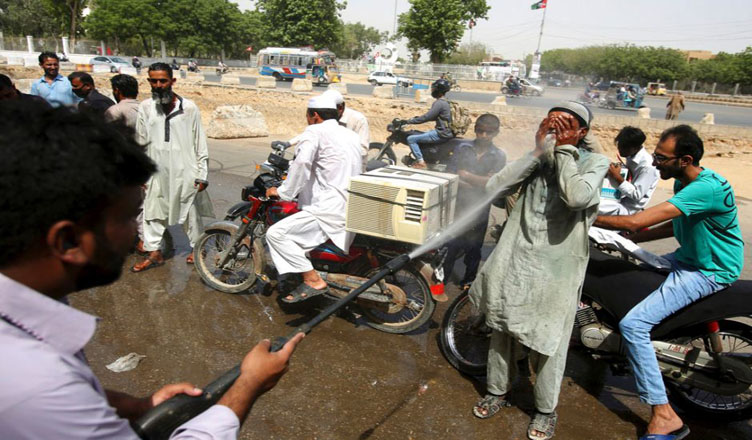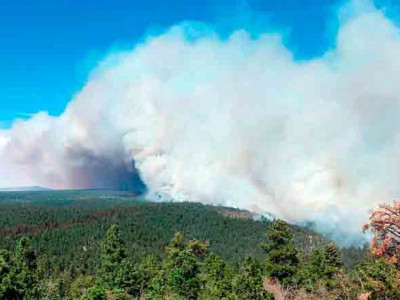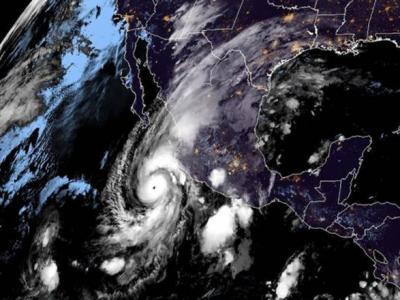(COLOMBO, LANKAPUVATH) –Hotter than average temperatures have killed at least 65 people in just three days in Karachi, Pakistan.
Temperatures reached a high of 44 degrees Celsius (111 Fahrenheit) on Monday, according to the Pakistan Meteorological Department, way above the average daily high for May of 35 degrees Celsius (95 Fahrenheit).
The situation was exacerbated by power outages citywide and ongoing fasting for the holy month of Ramadan, during which many Muslims abstain from eating and drinking during daylight hours.
Faisal Edhi, from Edhi Foundation which runs Karachi’s morgues, told CNN that 65 people had died, however the number was disputed by the director for the provincial disaster management authority in Sindh, where Karachi is located.
Muhammad Ali Shaikh said that so far only one person had died. He added the heatwave is ongoing and advised people to stay inside and avoid the heat.
The heatwave has also reached central and northern India. Conditions are expected to remain hot until the arrival of monsoon rains which are forecast to come in early June in southern India before moving north throughout the month, coinciding with the end of Ramadan on June 14.
This is not the first time people in Karachi have endured such intense heat. A 2015 heatwave in the city reached 45 degrees Celsius, killing at least 1,300 people, including many ill and elderly people.
Temperatures are forecast to stay in the low 40s (105 to 110 Fahrenheit) for the next few days before cooling down to the upper 30s (upper 90s to low 100s Fahrenheit) at the end of the week.
“The biggest issue is that there is no green cover in the city,” said Suneela Ahmed, a Karachi based architect and urban designer.
Normally Karachi has a high humidity level, during a heat wave there is a change in wind direction which brings in dry inland winds to the city instead of moisture from the sea, (and) there are no trees to provide the green cover.”
Due to a focus on housing, which has seen much of the green hinterland surrounding the city removed, “these lungs of the city have been demolished,” Ahmed said.
“With the extremity of these issues and no initiative to address them, in 15 years this city won’t be livable.”




